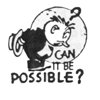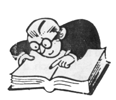|

This story was published in Radio Recall, the journal of the Metropolitan Washington Old-Time Radio Club, published six times per year.
Click here to return to the index of selected articles.
|
|
 
ASK THE EXPERT...
Our expert this issue is Elizabeth McLeod, well known OTR historian and researcher.
(From Radio Recall, October 2005)
QUESTION: I recently heard on a network TV show that the 1925 Scopes “monkey” Trial was broadcast live. Is this correct, and if so, are there any surviving audio copies of that coverage? (Dr. Hank Mueller,
Portland, OR)
ANSWER: The trial was broadcast over WGN, Chicago, with staff announcer Quin Ryan assigned to provide commentary from the courtroom. The Tribune Company, owner of the station, arranged for a special AT&T wire from the town of Dayton, TN back to Chicago to handle the relay.
No recordings are known to exist. There have been persistent rumors over the years, and I've been approached by a couple of different people over the years who "swear they've heard them," but these individuals have never been able to substantiate their claims. Given the extreme rarity of any genuine broadcast recordings prior to 1930, I have to say that there is little-to-no chance that these claims have any substance. Silent newsreel footage does exist, but there is no genuine audio.
For what it's worth, I haven't personally encountered genuine off-air recordings of *any* WGN broadcasts until 1933 -- a few supposed ones have turned up from the late twenties, but when investigated they invariably turn out to be misattributed dubs of National Radio Advertising Inc. syndication discs or ordinary commercial phonograph records.
It's safe to say that if an event was broadcast before 1930, the odds of a recording of that broadcast having been made are very slim, and the odds of such a recording *surviving* are even slimmer. No effective means for making an instantaneous, continuous recording of a radio broadcast existed before 1927, and such equipment did not become widely available until 1929-30. No station or network possessed recording equipment of its own until the early 1930s.
Thus any recording of a broadcast from 1925 would have required the sort of apparatus found in a commercial phonograph-company studio, and while experimental broadcast recordings were made by some of these companies, there is no surviving evidence that any of them recorded any portion of the Scopes Trial coverage.
|